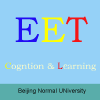-
Multiple intelligences, Part 2
普通类 -
- 支持
- 批判
- 提问
- 解释
- 补充
- 删除
-
-
Introduction
WHAT ARE THE MULTIPLE INTELLIGENCES that Howard Gardner proposed in 1983? There were seven of them identified originally. At the beginning of 2002, the list stands at eight (Gardner, 1993), with a couple candidates still under investigation.
-
Four more intelligences
Four of the eight categories of intelligences as currently identified by Gardner and his team are presented in Multiple Intelligences, Part 1. This article completes the list with the other four intelligences. Do you recognize your capacities in any of the following? See how you answer the questions beneath each image.
-
Logical-Mathematical
This is the intelligence Gardner claims is traditionally measured as part of conventional I.Q. tests (Gardner, 1987).. The emphasis is on solving problems pretty much the way computers are programed to do it. Scientists, engineers, and accountants are usually high in this intelligence.

How often do you find yourself thinking in numbers? Are you always trying to "puzzle" something out?-
Verbal-Linguistic
The second part of what Gardner says is actually being measured to arrive at current Intelligence Quotients. People who primarily "think with words" have a high Verbal-Linguistic Intelligence. Poets, writers, public speakers, and editors are some of the population who are probably very high level in this intelligence.

Do you like to "talk something through", even in your own head? Do you often use "I hear what you're saying" to express understanding?-
Spatial
This was actually the first alterternative intelligence identified by Gardner. The ability to work out spacial and positional relationships is a crucial intelligence for people like sailors, cartographers, trackers, and guides. People who always seem to know where they are or never get lost are high on the scale of this intelligence.
.gif)
Do you know your way around places naturally? If you have been there once, can you always find your way back?-
Intrapersonal
Knowledge of things around you is only knowledge in part. Knowledge of oneself is also essential. The ability know one's place in the scheme of things may be the result of the Intra-personal Intelligence of an individual. Philosophers, psychologists, and all those persons that tend to be described as having a sense of self-assurance about themselves may be the candidates for having high Intrapersonal Intelligence.

What is the sound of one hand clapping? Do you like to ponder similar questions?-
Relation
Guillermo Colls, Graduate Student
-
-
- 标签:
- measured
- part
- multiple
- intelligences
- people
- intelligence
- intelligence.
- gardner
- identified
- intelligence.do
- know
- ability
- knowledge
-
加入的知识群:



学习元评论 (0条)
聪明如你,不妨在这 发表你的看法与心得 ~